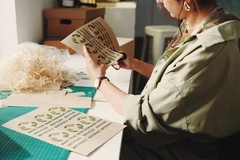Stora Enso announces new Czech timber site following closure of Russian plants

10 Oct 2022 --- Stora Enso has announced a new production site for cross-laminated timber (CLT) in Ždírec, Czech Republic, to supply what the company considers to be environmentally sustainable materials to consumers.
The renewable packaging, biomaterials, wooden construction and paper company plans on building the new site to keep up with booming demand for environmentally sustainable materials. However, experts question how eco-friendly these wood products truly are.
Ždírec is Stora Enso’s fourth production unit for CLT, following Bad St. Leonhard and Ybbs in Austria and Gruvön in Sweden. The company recently removed three corrugated packaging plants from Russia to protest the war in Ukraine.
“The combination with the existing sawmill will bring additional benefits, for example in terms of raw materials, energy and logistics,” says Martin Brebis, mill manager at Ždírec site.
CLT site
The materials made at the production site will be used in solutions for floors, walls and roofs for residential, commercial, and industrial buildings. Stora Enso calls CLT a sustainable building material that “allows construction with precision and speed [and] offers strength, stability, rapid assembly and cost effectiveness.”
 Stora Enso new production facility of CLT for environmentally sustainable wood solutions is set to be built in the Czech Republic. The company states that “everything that is made from fossil-based materials today can be made from a tree tomorrow.”
Stora Enso new production facility of CLT for environmentally sustainable wood solutions is set to be built in the Czech Republic. The company states that “everything that is made from fossil-based materials today can be made from a tree tomorrow.”
The new location in the Czech Republic is due to Stora Enso focusing on strengthening its place in European markets, as it has recently pulled out from its other sites in Russia.
The estimated annual production capacity of the location will be approximately 120,000 m³ with the company's current total capacity being 490,000 m³ – making it one of the largest private forest owners in the world.
The site was built from a €79 million (US$76.6 million) investment in September 2020.
Timber trade
The announcement comes with a massive uptick in businesses replacing plastics with fiber-based materials in efforts to reduce reliance on fossil fuel-based resources and advertise their carbon emissions reductions. In 2021, Innova Market Insights labeled this trend the “Fiber-based Frenzy.”
Earlier this year, The European Paper Packaging Alliance (EPPA) sought to double down on its position that single-use paper packaging is more environmentally friendly than reusable packaging.
However, according to the Environmental Paper Network (EPN), the average sheet of A4 paper swallows at least 20 liters of water. In some nations, this takes up 10% of the country’s entire water supply. Over half of the world’s paper supply is used in packaging, due to transport and disposal issues. In 2013 the EPN suggested that paper could produce more greenhouse gas emissions than the aviation industry.
 Ukrainian war sparks many fiber-packaging companies to leave their facilities in Russia. The UN-established a threshold of protecting 30-50% of the world’s forests within this decade, based on the potentially damaging effects of the timber and fiber-based industries on the environment.
Ukrainian war sparks many fiber-packaging companies to leave their facilities in Russia. The UN-established a threshold of protecting 30-50% of the world’s forests within this decade, based on the potentially damaging effects of the timber and fiber-based industries on the environment.
Fiber leaves Russia
Major paper packaging groups and forestry standards authorities have been freezing their operations in Russia in a show of protest against the invasion of Ukraine.
In May 2022 Stora Enso pulled out of Russia, divesting its three corrugated packaging plants in the country. The company said that local ownership and operation will provide a more sustainable long-term solution for these businesses and their respective employees due to uncertainties in the Russian market.
Some of the industry’s most prominent fiber-packaging corporations – like Stora Enso – have announced they will be ending all trade with Russia due to the “unacceptable” war in Ukraine. Stora Enso said they would stop all production and sales in Russia until further notice.
Huhtamaki sold its operations in Russia after pledging to divest from the country. They announced its assets were purchased by local business Espetina for €150 million (US$145 million).
These exits by major fiber-based packaging players that previously profited from the country’s timber supply demonstrate a strong force within the timber industry to create and take away business opportunities.
By Sabine Waldeck










